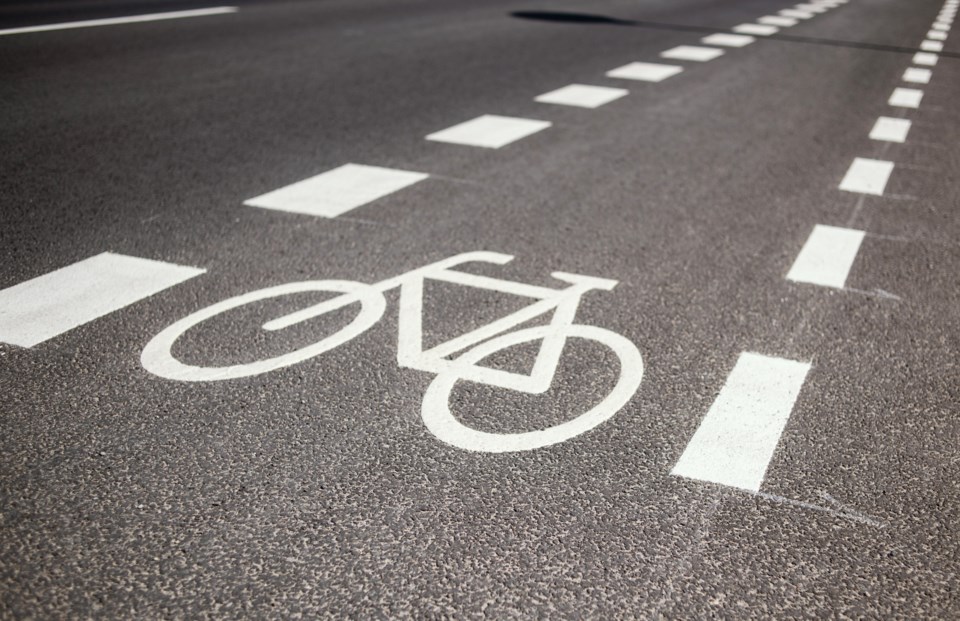Editor's note: This article originally appeared on The Trillium, a Village Media website devoted exclusively to covering provincial politics at Queen’s Park.
The Ford government is being asked to stay in its lane.
Municipalities, businesses and road safety advocates came to Queen's Park on Monday to register their displeasure with Bill 212, which, among other things, would force municipalities to get the province's sign-off on new bike lanes that would remove a lane of vehicle traffic.
Premier Doug Ford has also promised to remove some or all of the bike lanes on Bloor Street, Yonge Street and University Avenue in Toronto.
Advocates' messages were the same as they have been since word first leaked about Ford's bike lane plans.
Municipalities said the province was overreaching into matters best decided at the local level. The City of Toronto said cycling is skyrocketing in popularity as infrastructure has been built. A business group on Bloor said its shops have seen higher spending since the bike lanes went in. Safety and urbanism advocates said protected bike lanes are critical to protect vulnerable road users.
And nobody agreed with the government's position that bike lanes are a major cause of congestion.
In fact, due to the province's own policies, Toronto developers are building more bike parking than car parking, said Jacquelyn Hayward, Toronto's director of transportation project design and management.
Removing the bike lanes now "would have wide-reaching negative effects on Toronto’s transportation system," she said.
Toronto staff found the construction from removals would snarl traffic for "multiple years," Hayward said. Staff predicted "likely minimal improvements in travel time" afterward.
Construction is one of the main reasons Toronto traffic is so bad, Hayward said — "not bike lanes."
Cycling up, business up
Bike lanes are good for business, according to Bloor-Annex BIA chair Brian Burchell.
Since the Bloor bike lane was installed in 2016, both the number of customers and their spending went up, Burchell said.
The bike lanes have become an “integral part of our complete main street” which is now a “vibrant, green, welcoming business district," he said.
“We’re not a freeway, but a village," he said.
Ontario's main municipal group also said it wanted the province to butt out.
“Does anyone really believe that removing these bike lanes will solve the complex challenge of congestion in Toronto?” Association of Municipalities of Ontario (AMO) executive director Brian Rosborough said.
PC MPP Hardeep Singh Grewal asked Rosborough if AMO was in favour of moving bike lanes from main roads to side streets.
"If it were a good idea, municipalities would surely do it without provincial intervention," Rosborough said.
Safety in numbers
Cycling has exploded in popularity in Toronto as the city has built infrastructure, especially among casual users. This year has seen over 750,000 Bike Share Toronto rides that started or ended along the Bloor, Yonge and University bike lanes, Hayward said.
Despite a 40–90 per cent increase in cyclists after the Bloor bike lanes were installed, cyclist injuries are down 56 per cent, she said. Pedestrian and driver injuries are also down.
"Removing these lanes would reverse the safety gains we’ve worked so hard to achieve," Hayward said.
A common argument against bike lanes is that "Toronto is not insert European city of choice," Scott Butler, the executive director of Good Roads, said. But 50 years ago, cycling havens like Amsterdam and Copenhagen were congested and auto-centric — like Toronto, he said.
"They had leadership that recognized ... that if they wanted the outcomes, particularly around safety, they needed to redesign the built environment," he said.
'You just don't want cars to move': transportation minister
NDP MPP Joel Harden confronted Transportation Minister Prabmeet Sarkaria with the deaths of Alex Amaro and Ali Sezgin Armagan, who were killed while riding bikes in Toronto.
“What you’re saying to vulnerable road users is that you do not care about them," Harden said.
Those deaths were “obviously very unfortunate,” Sarkaria said, adding that the idea is to move bike lanes to side roads "where it’s safer, where there’s less traffic."
People will still bike on major roads with or without bike lanes, NDP MPP Jennifer French said, predicting "carnage on our streets."
Later, Sarkaria accused opposition MPPs of advocating for congestion.
"What I can take from some of your comments there is, you just don't want cars to move in the city," he said.
Speaking to journalists later, Sarkaria disputed Toronto's $48-million cost estimate for removing the bike lanes but didn't have his own.
"I just don't think that can be accurate," he said, pointing to other bike lane removals that have cost less.
The Ford government has not yet said whether it plans to remove all or only some of the Bloor, University and Yonge bike lanes.
More removals to come?
A new survey suggests the government may not stop at tearing out the Bloor, Yonge and University bike lanes. Progressive-Conservative connected pollster Campaign Research recently asked people whether they think the lanes on Richmond Street, Adelaide Street and Danforth Avenue need to go as well.
The Richmond and Adelaide bike lanes were approved in 2014. Then-councillor Ford and his late brother, then-mayor Rob, both voted against the bike lanes but were defeated 39-5.
